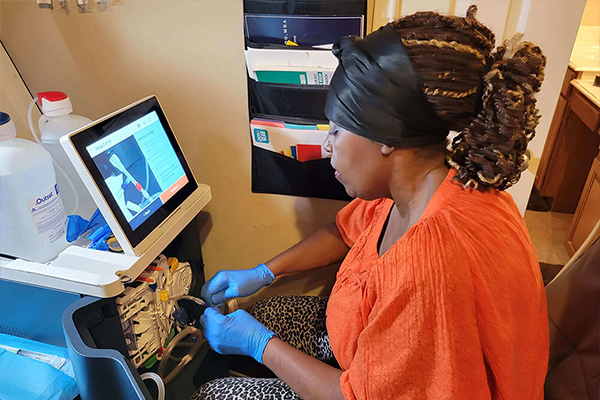Dialysis at Home: The Importance of Support Systems

Home dialysis has transformed how people with kidney disease manage their condition. Patients can now receive treatment in the comfort and privacy of their own homes. But home dialysis success strongly depends on having a reliable support system. That can vary from person to person but often includes doctors, family, friends and community resources. You may be considering home dialysis or have a family member who’s interested in exploring it. In this article, we’ll talk about the benefits of establishing healthy support systems and how they can assist patients treating at home.
Medical Support
No surprise here – a strong support system must include medical professionals, including nephrologists and dedicated dialysis nurses. The care team ensures the home dialysis plan meets an individual’s specific needs. They monitor the patient’s progress, make necessary adjustments to treatment plans and address any complications that may arise.
Don’t be afraid to ask questions, do research and be an advocate for your health or that of a loved one.
Emotional Support
Just as we care for our physical health during dialysis, it’s just as important to look after our mental well-being. Living with a chronic illness often requires significant adjustments to daily life, and those coping may struggle with anxiety, depression and feelings of isolation. An emotional support system provides a reassuring reminder that they are not alone on this journey.
People who receive emotional support from family, friends, support groups or licensed mental health professionals are better equipped to cope with the mental hardships of their condition. Dialysis patients should feel encouraged to share their experiences and the challenges they face. Talking about feelings, rather than bottling them up, is a healthy way to process emotions and often provides a sense of mental relief. For more information and additional resources on chronic illness and mental health, visit the National Institute of Mental Health. Remember, a healthy mind can be a powerful ally to your physical health.
Community Support
Support groups and community resources can offer valuable information about managing dialysis, understanding medical options and learning about lifestyle adjustments. This can take the shape of support groups, transportation services, educational programs and wellness classes. In addition to providing local assistance, community support offers individuals a sense of belonging and connection. Joining a local support group can provide a space to connect with others who share similar challenges. Sharing experiences, advice and coping strategies can be empowering and reduce feelings of isolation.
Financial Support
Financial counselors can help people struggling with health challenges by creating a budget that includes medical expenses. They can also find potential sources of financial assistance, such as government programs, charitable organizations and prescription assistance programs.
A financial support system can also help people navigate the tax implications associated with medical expenses, including deductions and tax-advantaged accounts such as Health Savings Accounts (HSAs) and Flexible Spending Accounts (FSAs).
Legal Support
Rounding out our list of support systems is legal support. Legal professionals specializing in healthcare can help patients understand their rights and entitlements under various health laws and insurance policies. This understanding is important for accessing necessary treatments, medications and ensuring that insurance companies provide the coverage they’re entitled to.

